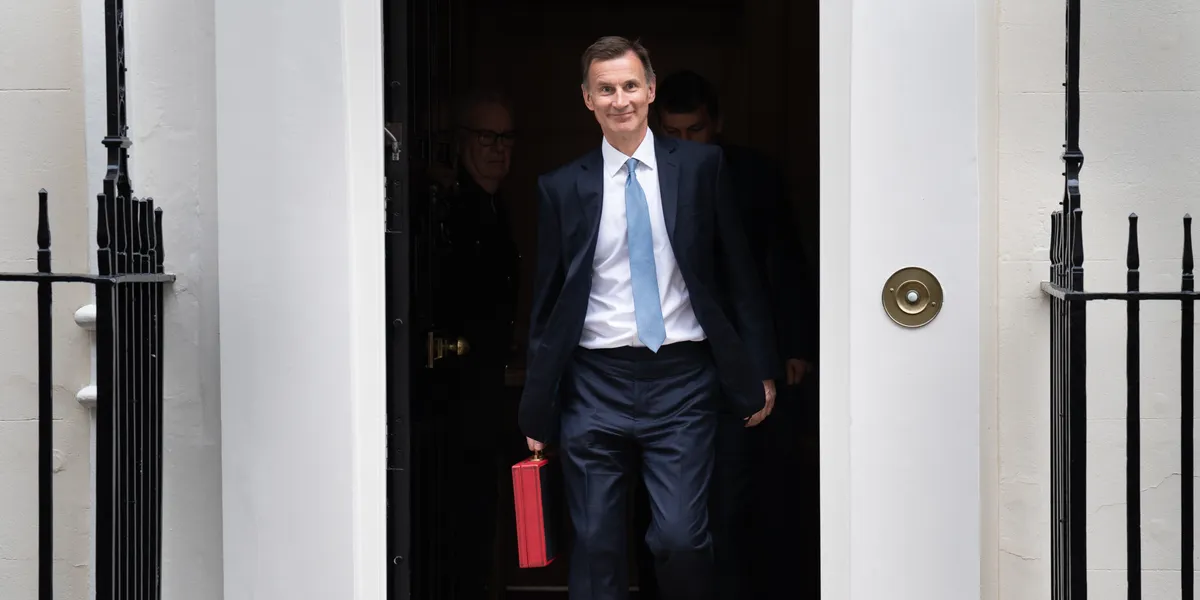The Budget has produced some “winners” who may receive a boost or see their financial situation eased, as well as some “losers” who will feel a greater squeeze on their wallets. Here are some examples of how people have been affected:
Winners: People with significant pension pots
Wealthier pension savers with large sums to invest will benefit from an increase in the pensions annual allowance – the limit on how much money people can build up in their pension in any one tax year while still receiving tax relief – from £40,000 to £60,000.
Meanwhile, the lifetime pension allowance will be phased out. It has remained at £1.07 million, with savers subject to tax once that personal pension pot threshold has been exceeded. People in senior positions, such as those working in the NHS, may benefit most from the change.
Winners: Parents of young children
Chancellor Jeremy Hunt has announced an expansion of free childcare for children aged nine months and older.
Plans call for eligible working parents in England with children as young as nine months to receive 30 hours of childcare per week.
The government will also pay the childcare costs of parents on Universal Credit who move into work or increase their hours upfront rather than in arrears, removing a major barrier to work for people on benefits.
The funding paid to nurseries for the existing free hours offer will be increased, and schools and local governments will be funded to increase the supply of wraparound care, allowing parents of school-age children to drop off their children between 8 a.m. and 6 p.m.
Winners: Energy bill payers
The Treasury has reversed plans to reduce energy support for households beginning April 1, relieving at least some of the additional pressure that high bills were putting on households.
Since October, the scheme has limited a typical household energy bill to £2,500, but this was set to rise to £3,000 in April. The scheme will now be extended for another three months at a cost of £2,500.
However, bill payers will have to find an extra £67 per month to pay their energy bills starting in April, when the Energy Bill Support Scheme, which has seen households receive six monthly payments of £66 or £67 direct to their energy accounts, ends.
Winners: Motorists
A planned 11p increase in fuel duty will be cancelled, with the previous year’s 5p cut extended for another 12 months. According to the government, this will save a typical driver an additional £100 on top of the £100 saved since last year’s cut.
The funding for repairing potholes in England will be increased by £200 million. The Government’s Potholes Fund will be increased to £700 million in the fiscal year 2023/24.
Winners: Pubs and their customers
Draught relief has been extended so that the duty on an average draught pint of beer served in a pub does not increase from August and is up to 11p lower than the duty in supermarkets. The commitment to duty on a pub pint being lower than at the supermarket has been termed the “Brexit pubs guarantee” by the Government.
Winners: Leisure centres
A total of £63 million will be spent to assist swimming pool leisure centres in meeting energy costs and becoming more efficient.
Losers: Selected benefit recipients
In an effort to encourage people to work, sanctions for claimants who do not look for or accept employment will be increased.
According to budget documents, the government is strengthening the way the sanctions regime is applied, including providing work coaches with the tools and training they need to implement sanctions as effectively as possible, including for failing to take up a job.
Losers: Savers
The annual subscription limit for tax-free Isas will remain at £20,000, despite rising inflation eroding the real value of people’s savings.
Losers: Businesses
The Chancellor has resisted demands from Conservative MPs, including Boris Johnson, to scrap April’s increase in corporation tax from 19% to 25%.
However, he has promised a generous set of reliefs to help firms reduce their bills.
Losers: Some renters and homeowners
Some commentators have called for more intervention to help the housing and rental markets.
“Measures such as offering a tax break incentive for downsizers – or indeed right-sizers – to find a home that suits their changing lifestyle, would free up much needed housing stock at the middle and upper end of the market, and one that could be well received amongst older homeowners who are suffering most from high energy costs,” said Nick Leeming, chairman of estate agent Jackson-Stops.

